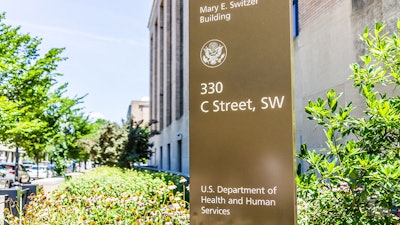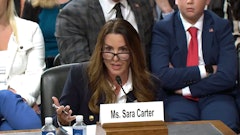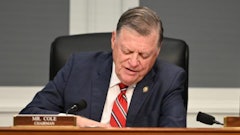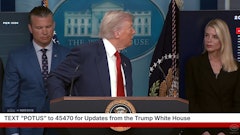
Cannabis Business Times (CBT) received Oct. 25 an almost entirely redacted copy of the widely reported letter containing the Department of Health and Human Services’ (HHS) recommendation on cannabis’s classification under the Controlled Substances Act (CSA).
SIGNED - ASH to DEA Letter Marijuana by Tony Lange on Scribd
The HHS recommendation resulted from President Joe Biden’s directive in October 2022 to Secretary Xavier Becerra and Attorney General Merrick Garland to initiate an administrative process on cannabis’s CSA scheduling via a medical and scientific analysis of cannabis.
Rachel L. Levine, Assistant Secretary for Health, sent the one-page letter to Anne Milgram, Administrator at the Drug Enforcement Administration (DEA), on Aug. 29, and according to reporting from Bloomberg, which broke the story, HHS recommended rescheduling cannabis from Schedule I to Schedule III under the CSA.
RELATED: ‘Rescheduling is Not Enough,’ And Other Reactions to HHS Recommendation on Cannabis
Bloomberg reportedly has seen the letter but does not have it. Bloomberg reporters wrote: “A top official at the Department of Health and Human Services wrote Drug Enforcement Administration head Anne Milgram calling for marijuana to be reclassified as a Schedule III drug under the Controlled Substances Act, according to a letter dated Aug. 29 that was seen by Bloomberg News.”
CBT filed several requests with HHS and the DEA under the Freedom of Information Act (FOIA) in an attempt to obtain a copy of the letter.
“The Freedom of Information Act (FOIA) has provided the public the right to request access to records from any federal agency. It is often described as the law that keeps citizens in the know about their government,” according to FOIA.gov.
CBT’s FOIA filings also included a request for expedited treatment by the DEA.
RELATED: Read all of Cannabis Business Times rescheduling coverage and commentary
Per FOIA.gov, “There are two specific situations where a request will be expedited …,” and the second specific situation outlined by FOIA is “if there is an urgency to inform the public about an actual or alleged Federal Government activity, if made by a person who is primarily engaged in disseminating information, his or her request will be expedited.”
CBT’s expedited request was denied by the DEA.
“It’s unacceptable that our expedited requests were denied, as despite the fact that not only does the matter hold tremendous urgency for the state-legal cannabis industry and society at large, but also CBT and its editorial team are absolutely primarily engaged in disseminating information,” said CBT Editorial Director Noelle Skodzinski.
“The letter is the property of the public, and there is no justification as to why it is not being shared with the public,” said CBT Editor-in-Chief Michelle Simakis.
HHS sent the heavily redacted letter to CBT 30 business days after CBT filed the FOIA request. In HHS’s response to CBT’s request, it claimed it redacted contents of the letter under an exemption under Exemption (b)(5) of FOIA, which focuses on intra-agency communications.
“I have found that it is reasonably foreseeable that disclosure would harm an interest protected by one or more of the exemptions to the FOIA’s general rule of disclosure and/or that disclosure is prohibited by law; therefore, I am withholding one page in parts, with portions redacted, pursuant to Exemption (b)(5) of the FOIA (5 U.S.C. §552),” wrote William H. Holzerland, Deputy Agency Chief FOIA Officer for HHS, in his response to one of CBT’s FOIA requests. “Exemption (b)(5) protects inter-agency or intra-agency memoranda or letters which would not be available by law to a party other than an agency in litigation with the agency. This exemption protects documents that would be covered by any privilege an agency could assert in a civil proceeding. These privileges include, among others, the deliberative process privilege, the attorney-client privilege, and the attorney work-product privilege. In this instance, the process privilege applies.”
Matthew C. Zorn, partner at Yetter Coleman, filed a lawsuit against HHS Sept. 29 in the U.S. District Court in the District of Columbia, after HHS: failed to produce the letter in response to Zorn’s FOIA request (filed Aug. 30); has not made “a timely determination within 20 days” regarding the request; and has not made “a timely determination on expedited treatment” requested by Zorn in his FOIA request, according to the suit.
Zorn confirmed with CBT that, as of press time, he had not received a response to his suit from the HHS.
In a LinkedIn post on Oct. 25, Zachary Kobrin, attorney and cannabis law specialist, noted he received the same redacted letter from HHS.
“I just received my response and not surprisingly they claim an exemption and redact or withhold everything,” Kobrin wrote. “I am trying to see if anyone is getting a different result.”
Cannabis Business Times was able to confirm Aug. 30 with both HHS and the DEA that a recommendation letter was sent by HHS and received by the DEA, but neither government organization would share the letter with CBT nor confirm that the letter recommended reclassifying cannabis from Schedule I to Schedule III.
A DEA spokesperson told CBT in an email, “We can confirm DEA received a letter from the Department of Health and Human Services providing its findings and recommendation on marijuana scheduling, pursuant to President Biden’s request for a review. As part of this process, HHS conducted a scientific and medical evaluation for consideration by DEA. DEA has the final authority to schedule or reschedule a drug under the Controlled Substances Act. DEA will now initiate its review.”
And an HHS spokesperson told CBT in an email, “Following the data and science, HHS has expeditiously responded to President Biden’s directive to HHS Secretary Becerra and provided its scheduling recommendation for marijuana to the DEA on August 29, 2023. This administrative process was completed in less than 11 months, reflecting this department’s collaboration and leadership to ensure that a comprehensive scientific evaluation be completed and shared expeditiously.”
“This news, first reported by Bloomberg, has wide-ranging implications for the cannabis industry, including a shift in federal policy that would recognize cannabis as having medical value should the DEA take up the HHS on its recommendation,” CBT reported. “Should cannabis be reclassified as Schedule III, it would break ties with ‘high abuse’ substances like heroin, LSD, methaqualone and ecstasy, and instead join the likes of ketamine or acetaminophen products containing codeine. But the DEA has final authority over rescheduling drugs.”
As of press time, CBT is reviewing its appeal options.


























